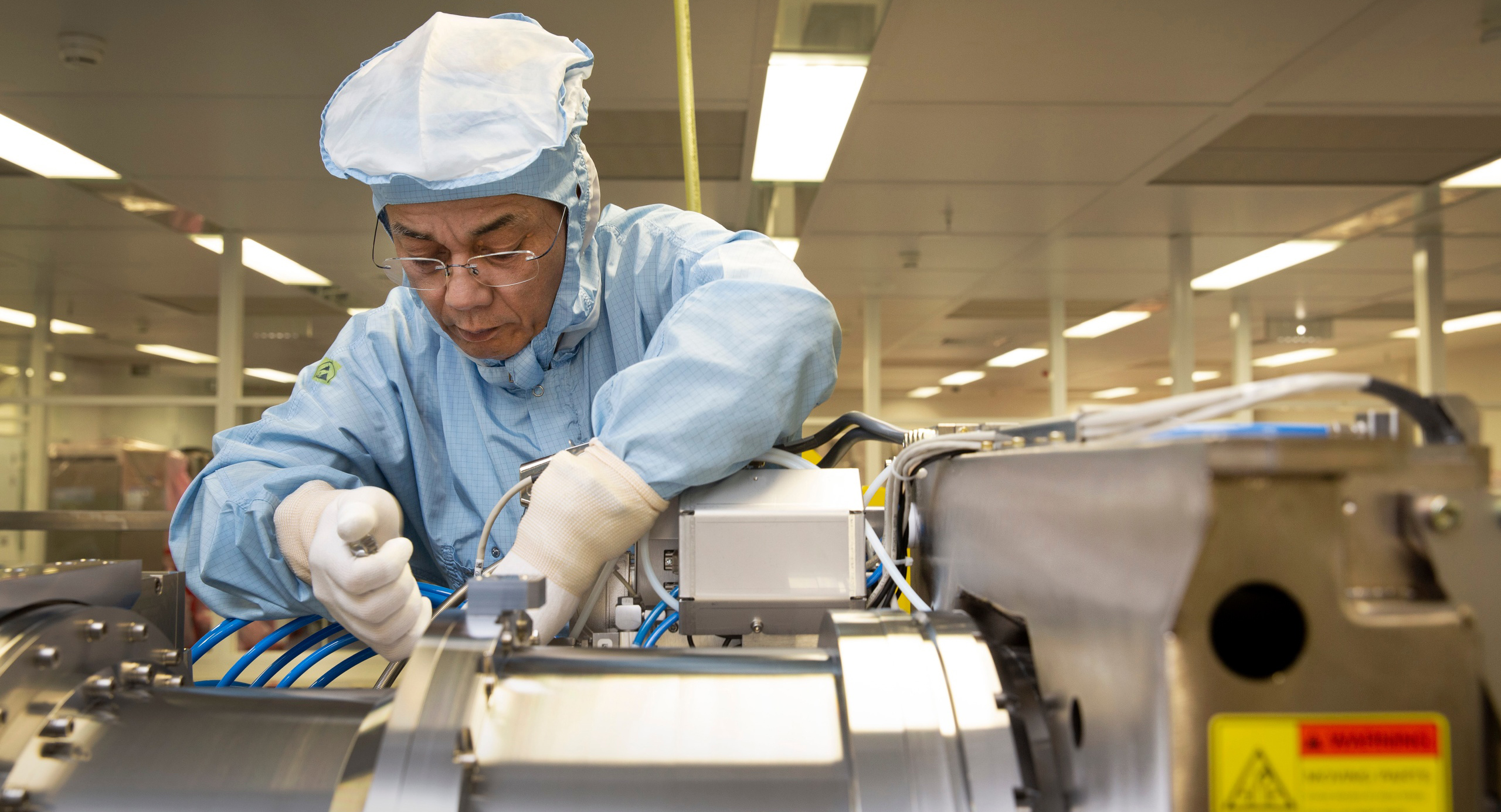Update: ASML Denies Report it Was Working on China-Specific Lithography Tools
Cut-down Twinscan NXT:1980Di potentially inbound

DigiTimes reported that ASML is mulling the release of a special version of its deep ultraviolet lithography (DUV) tool that will comply with the latest U.S. export rules and that could be shipped to Chinese customers without a license. The device would enable companies like SMIC and Hua Hong to make chips on 28nm-class nodes and thicker, but it will not allow them to use more advanced nodes. However, the company has since denied this report.
Updated (7/6): ASML wrote us a note, saying that the DigiTimes report is incorrect.
"ASML complies with all applicable laws and regulations, and that it is not designing a system specifically for China and will not respond further to rumors and speculations," ASML said in a statement.
The lithography tool in question is the Twinscan NXT:1980Di, and currently this is the least advanced immersion scanner that ASML still makes. The machine has 1.35 numerical aperture optics and is capable of <38 nm resolution, which is enough for 7nm-class and even more advanced nodes. In fact, this scanner — originally released in 2016 — it was used by TSMC to develop its 7nm-class process technology.
Cutting down this device and increasing its minimum supported resolution to prevent SMIC and other Chinese chipmakers from creating sub-28nm process technology is theoretically possible. Keeping in mind that the lion's share of SMIC's revenue comes from production nodes that are thicker than 28nm, it is likely that Chinese companies would still be interested in procuring such tools.
The latest export regulations mandate American firms and individuals to obtain licenses for exporting tools and technologies capable of manufacturing logic chips with non-planar transistors on 14nm/16nm nodes and below, 3D NAND with 128 layers or more, and DRAM memory chips of 18nm half-pitch or less. The same rules apply to non-American companies that export components from the U.S., which is the case with ASML and the Twinscan NXT:1980Di.
The latest Dutch export rules require ASML to obtain an export license to sell its Twinscan NXT:2000i scanners to Chinese companies. ASML has not officially created a limited version of the Twinscan NXT, but if the export regulations continue to restrict sales of advanced technologies to China, such a move seems likely.
Get Tom's Hardware's best news and in-depth reviews, straight to your inbox.

Anton Shilov is a contributing writer at Tom’s Hardware. Over the past couple of decades, he has covered everything from CPUs and GPUs to supercomputers and from modern process technologies and latest fab tools to high-tech industry trends.